BY JENNIFER MOONSONG / GLASGOW NEWS 1
For many years, lawmakers and others have questioned whether or not the office of constable is still useful for the commonwealth of Kentucky.
In February 2022, after more than a decade of debate, the Kentucky General Assembly approved House Bill 239. This bill, also known as the constable reform bill, requires newly elected constables to have the same training as police officers and sheriff’s deputies. The fruits of this law begin this month.
Until now, they had the same power as law enforcement officers and could make traffic stops and arrests without any training, certifications or psychological evaluations. Many residents and lawmakers saw this as irresponsible and dangerous.
One of the lawmakers who pushed for the bill to pass was its primary sponsor, then-Rep. Adam Koenig, who instigated the bipartisan bill with the intent to make communities safer.
“Of course not all constables are bad, but unfortunately there’s been too many headlines to ignore the fact that constables without proper law enforcement training can be a serious problem,” Koenig said in a February 2022 television interview with WTVQ.
Headlines last year included Pulaski County Constable Michael Wallace’s being convicted of violating the civil rights of persons and possession with intent to distribute methamphetamine. Another high-profile case was that of Kenton County Constable Danny Cope, who allegedly threatened someone while trying to collect a debt for an insurance company. Looking back 10 years, headlines include numerous incidents of Kentucky constables engaging in all sorts of illegal activity including drug possession, assault, domestic battery and driving under the influence.
There is also ample data supporting the dangers of having constables without training.
On Sunday, just a few hours into the first day of his four-year term as constable for District 7 in Barren County, Joseph E. Ramey was arrested by the Glasgow Police Department after he allegedly assaulted, handcuffed and held against her will his girlfriend as part of a domestic dispute.
“Ramey was advised he did not have any police powers and could not restrain / detain anyone,” the arresting officer stated in the citation.
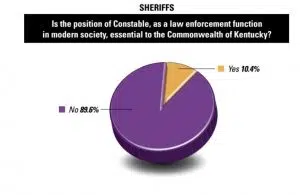
When surveyed in 2012, 89.6 percent of Kentucky sheriffs thought the position of constable in law enforcement was no longer essential.
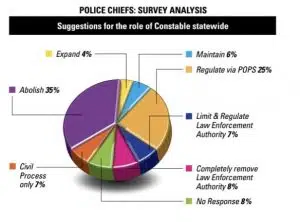
Police chiefs weighed in on the position of constable in 2012, with 35 percent saying abolishing the office was favorable.
A 2012 report compiled by the Kentucky Justice and Public Safety Cabinet was the first comprehensive evaluation of the office of constable since it came to be in Kentucky’s constitution in 1850.
The 264-page report detailed every aspect of the role from its importance to its antiquated nature and the risks and dangers associated with continuation of the office of constable. These things can be summarized in one question and one answer.
Question: Is the position of constable as law enforcement in modern society essential to the commonwealth of Kentucky?
Answer: No.
In fact, the overwhelming consensus of all surveyed was that the office of constable should be stripped of law enforcement authority; the majority felt the office should be abolished.
Kentucky State Police Post 3, the Barren County sheriff and the Glasgow Police Department all declined to comment for this report.
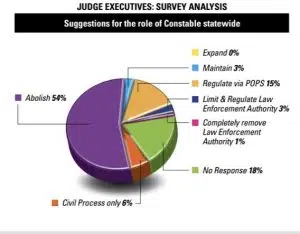
Fifty-four percent of judge-executives indicated in a 2012 survey that they believed the office of constable should be abolished.
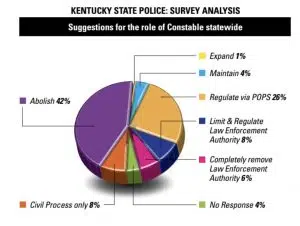
Forty-two percent of Kentucky State Police troopers interviewed felt in 2012 the office of constable should be abolished, while 8 percent felt they would serve as good couriers for civil processes.
Numerous news stories collected over the course of a decade were also included in the result of the evaluation. The news reports reflected DUIs, substance abuse, domestic violence and the frequent misuse of firearms.
These facts leave the majority of lawmakers feeling that House Bill 239 was a necessary step in the right direction.
This law requires that “any constable or deputy constable taking office after Jan. 1, 2023,” who was not in office the preceding four-year term of office, shall not possess the powers of a peace officer or police officer. They only gain those powers if and when they are certified pursuant to Kentucky Revised Statute 15.380.
Under this new law, elected constables are able to apply for admission to a basic training course at a Kentucky Law Enforcement Council-certified training school; however, schools may deny admission if the constable does not meet precertification requirements.

Kentucky is one of only 11 states that still had constables in roles where they’ve had law enforcement authority.
The Department of Criminal Justice Training is required to accept at least one constable per training class, beginning July 1, 2023.
Whether this measure will help reduce the number of incidents involving constables remains to be seen. Some Kentucky lawmakers and officials still hope to eventually see the office abolished altogether.
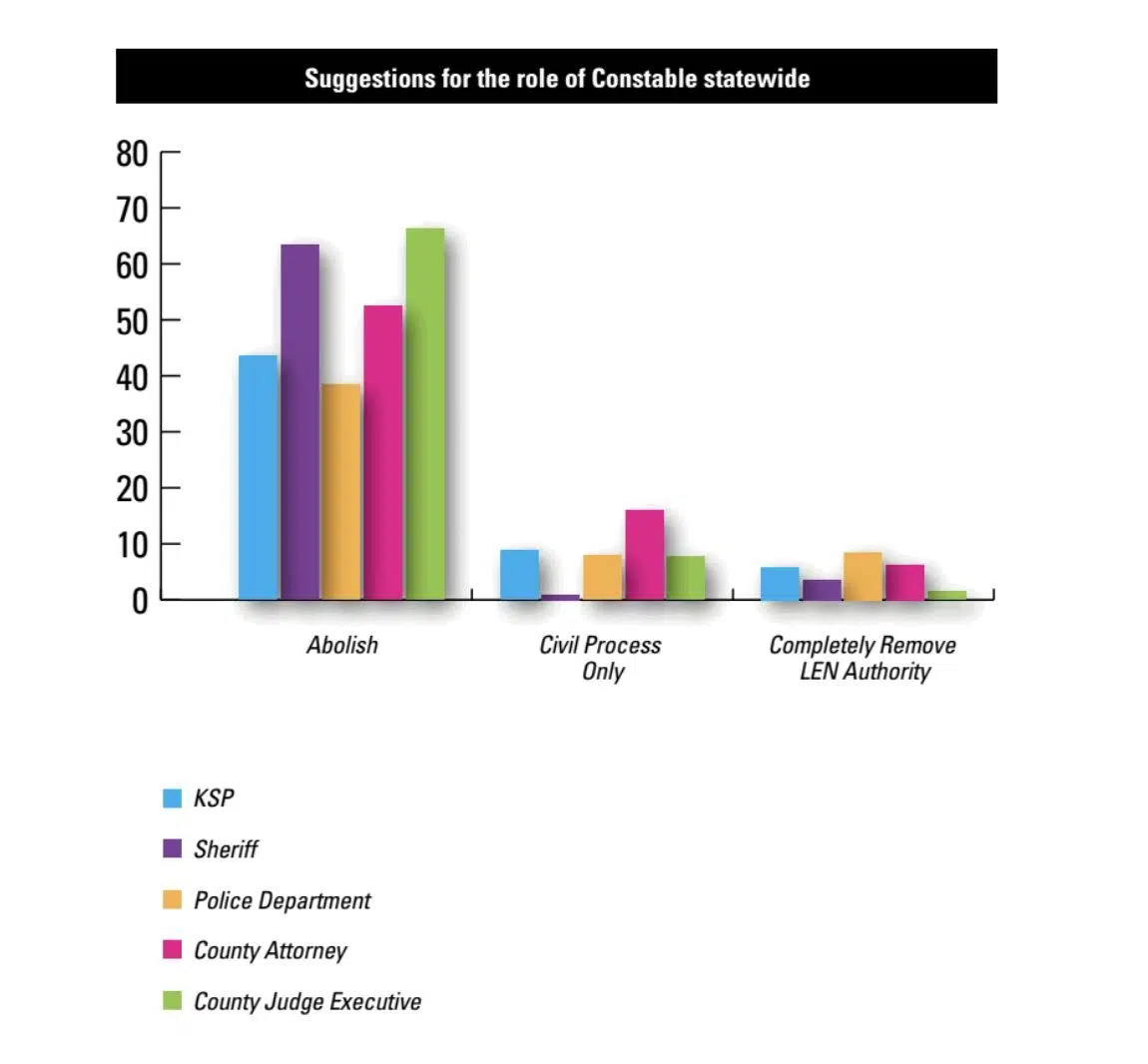
Comments